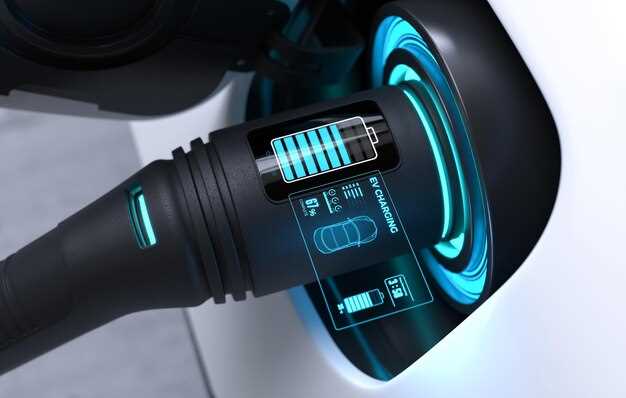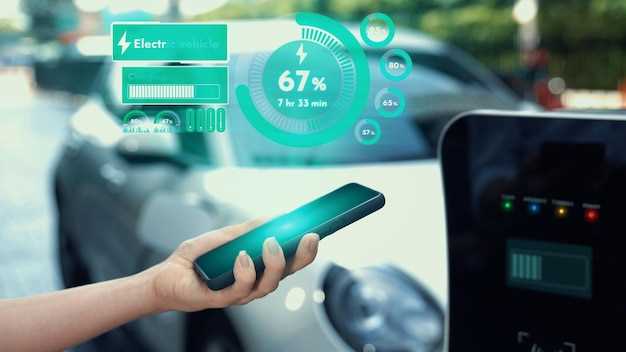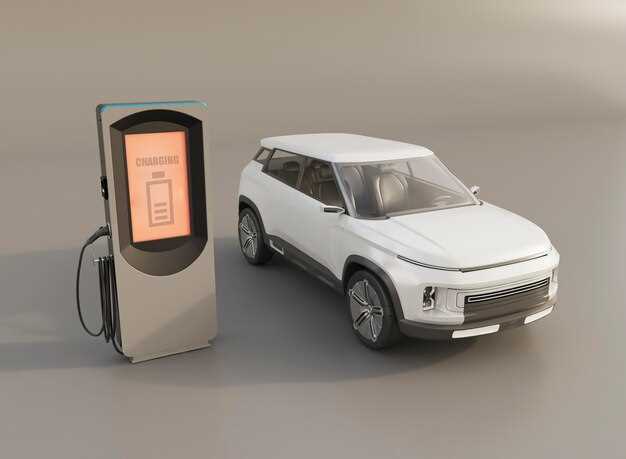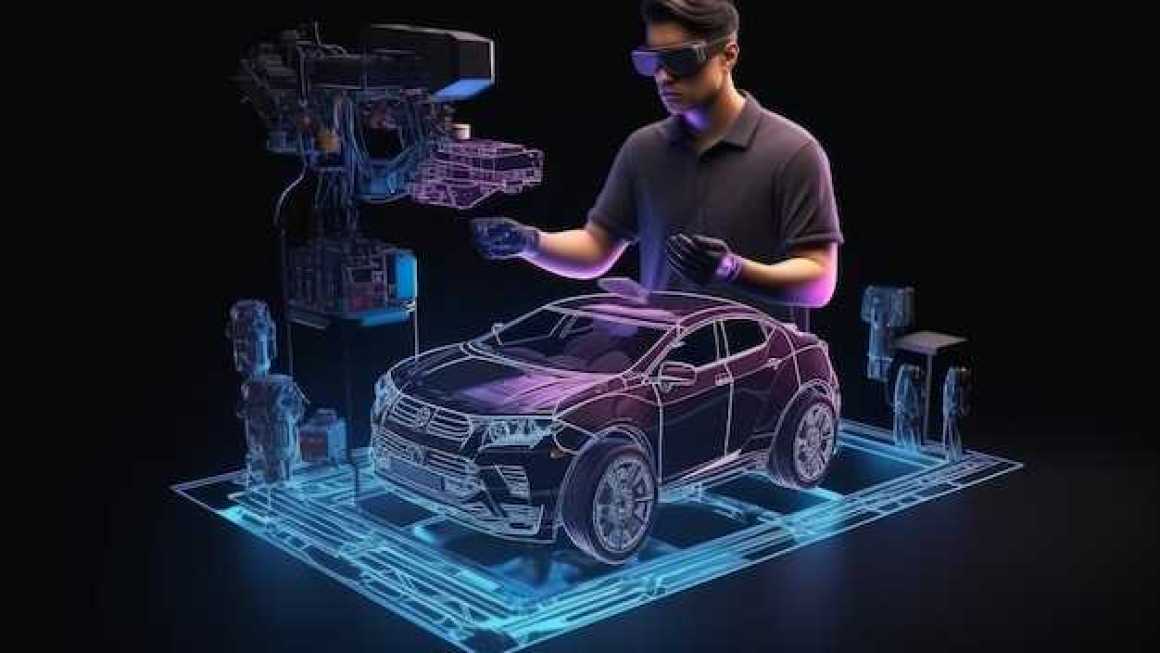
The realm of electric vehicles (EVs) is rapidly evolving, with significant innovations reshaping the landscape of battery technology. As the demand for greener transportation solutions accelerates, batteries become the focal point of this transformation. Today’s advancements promise not only to enhance the performance of electric vehicles but also to address the critical concerns of sustainability and efficiency.
Among the latest breakthroughs are improvements in lithium-ion batteries, paving the way for longer ranges and shorter charging times. New chemistries, such as solid-state and lithium-sulfur batteries, are offering greater energy densities and improved safety profiles, making them viable alternatives to traditional battery systems. As automakers and researchers push the boundaries of what is possible, the future of EV battery technology looks brighter than ever.
Moreover, the integration of artificial intelligence (AI) in battery management systems is enhancing the way we monitor and optimize battery performance. This fusion of technology is enabling smarter energy use and prolonging the lifespan of batteries. With these advancements, electric vehicles are poised to become more accessible and practical for consumers, ultimately ushering in a new era of sustainable transportation.
Advancements in Solid-State Battery Chemistry for EVs

Recent developments in solid-state battery chemistry represent a significant breakthrough for electric vehicles (EVs). Solid-state batteries utilize a solid electrolyte instead of the liquid or gel electrolytes found in traditional lithium-ion batteries. This innovation enhances safety, energy density, and overall performance of EV batteries.
One of the primary advantages of solid-state batteries is their increased energy density, which allows for longer driving ranges. This is achieved through the use of lithium metal anodes, which can store more energy compared to conventional carbon-based anodes. As a result, EVs equipped with solid-state batteries can potentially travel much farther on a single charge, addressing a common concern among consumers about range limitations.
Safety is also significantly improved with solid-state technology. The solid electrolyte is non-flammable, reducing the risks associated with battery fires. This attribute is particularly important for manufacturers and consumers who prioritize safety in their vehicles. Moreover, the stability of solid-state batteries contributes to longer cycle lives, reducing the need for frequent replacements in electric vehicles.
Researchers are exploring various materials for solid electrolytes, including sulfides, oxides, and polymers, to optimize performance. Each material offers unique benefits and challenges in terms of conductivity, mechanical properties, and compatibility with anodes and cathodes. Ongoing advancements in material science are paving the way for better-performing electrolytes that can withstand the demanding conditions of EV operation.
Additionally, advancements in manufacturing techniques, such as roll-to-roll processing, are allowing for more cost-effective production of solid-state batteries. As these methods continue to evolve, the overall cost of solid-state batteries is expected to decrease, making them a more viable option for mass-market electric vehicles.
In conclusion, the advancements in solid-state battery chemistry are poised to transform the landscape of electric vehicles. With improved energy density, enhanced safety, and extended lifespan, solid-state batteries represent the future of EV battery technology, ultimately making electric vehicles more attractive to consumers and paving the way for wider adoption in the automotive industry.
Impact of Fast Charging Technologies on Consumer Adoption
Fast charging technologies are transforming the landscape of electric vehicle (EV) adoption among consumers. As EVs gain traction, the need for efficient charging solutions has become critical. Quick charging capabilities significantly reduce the time required to recharge, making electric vehicles more appealing to a broader audience.
One of the primary concerns for potential EV owners is the inconvenience associated with charging times. Traditional charging methods can take several hours, which poses a challenge for those accustomed to the rapid refueling of gasoline vehicles. Fast charging addresses this issue by enabling drivers to recharge their vehicles in a matter of minutes, similar to the time it takes to refuel at a gas station.
Moreover, the expansion of fast charging infrastructure enhances consumer confidence in making the transition to electric vehicles. As charging stations become more accessible and widespread, potential buyers feel less apprehensive about the range limitations often associated with EVs. This accessibility encourages more drivers to consider an electric option, knowing they can quickly charge their vehicles during long trips or everyday commutes.
The rapid advancement of technologies such as high-power charging (HPC) and ultra-fast charging (UFC) accelerates the charging process even further. This innovation is crucial as it aligns with the increasing performance expectations of consumers. Electric vehicle manufacturers are responding to this demand by designing vehicles capable of supporting faster charging speeds, further driving the adoption rate.
Ultimately, the integration of fast charging technologies significantly impacts consumer behavior towards electric vehicles. As charging times continue to decrease, and infrastructure expands, the hesitation surrounding EV ownership diminishes. The convenience and efficiency provided by fast charging are key factors in motivating consumers to embrace electric vehicles, signaling a transformative shift in the automotive industry.
Recycling and Sustainability in EV Battery Production

The rapid growth of the electric vehicle (EV) market has highlighted the urgent need for sustainable practices in battery production. One of the primary concerns is the environmental impact of extracting raw materials, such as lithium, cobalt, and nickel, used in electric batteries. As the demand for EVs increases, so does the necessity for recycling these batteries effectively to minimize resource depletion and pollution.
Recycling plays a pivotal role in achieving a circular economy for EV batteries. By reclaiming valuable materials from spent batteries, manufacturers can significantly reduce the need for virgin material extraction. Advanced recycling techniques can recover up to 95% of critical elements, making it possible to produce new electric batteries with a decreased carbon footprint. This transition not only conserves natural resources but also lessens the environmental effects associated with mining operations.
Sustainable battery production also involves the design and implementation of eco-friendly manufacturing processes. Innovations in battery technology focus on reducing waste and utilizing renewable energy sources. Manufacturers are increasingly developing batteries with longer lifespans and improved performance, thus extending their usable life and further decreasing the environmental impact.
Furthermore, governments and organizations are working to establish regulations and standards that promote responsible recycling and sustainable practices within the battery supply chain. Collaborative efforts among industry stakeholders aim to enhance awareness about the importance of recycling electric vehicle batteries, ensuring that end-of-life products do not contribute to landfill issues.
In summary, the focus on recycling and sustainability in EV battery production is essential for creating a more eco-friendly automotive industry. By embracing innovative recycling methods and sustainable practices, it is possible to mitigate environmental challenges while supporting the growth of electric vehicles as a viable solution for climate change and urban pollution.



